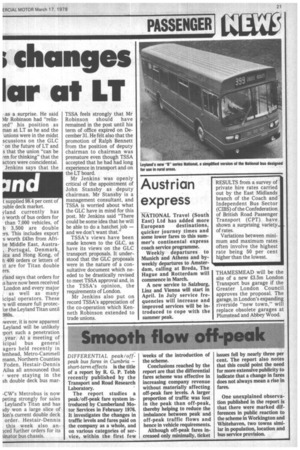DIFFERENTIAL peak/offpeak bus fares in Cumbria — short-term effects is
Page 23

If you've noticed an error in this article please click here to report it so we can fix it.
the title of a report by R. G. P. Tebb recently published by the Transport and Road Research Laboratory.
The report studies a peak/off-peak fare system introduced by Cumberland Motor Services in February 1976. It investigates the changes in traffic levels and fares paid on the company as a whole, and on various categories of service, within the first few weeks of the introduction of the scheme.
Conclusions reached by the report are that the differential fares scheme was effective in increasing company revenue without materially affecting off-peak fare levels. A larger proportion of traffic was lost in the peak than off-peak, thereby helping to reduce the imbalance between peak and off-peak traffic flows and hence in vehicle requirements.
Although off-peak fares increased only minimally, ticket issues fell by nearly three per cent. The report also notes that this could point the need for more extensive publicity to indicate that a change in fares does not always mean a rise in fares.
One unexplained observation published in the report is that there were marked differences in public reaction to the scheme in Workington and Whitehaven, two towns similar in population, location and bus service provision.
























































































































